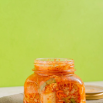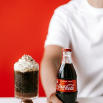Some people find themselves popping pills or chugging water to avoid a pounding head and queasiness the morning after a wild night. Some to a cup of coffee. Despite the belief that coffee can help speed in making you sober, consuming coffee makes it harder to acknowledge that you are intoxicated as you confuse alertness for sobriety thus making you wide awake.
As sited in Fox News, Dr. Robert Swift, Ph.D., the associate director of Brown University's Center for Alcohol & Addiction Studies, suggested that caffeine can trick your brain making you think that you're less drunk than you actually are.
The explanation for that is, when you begin drinking, alcohol flags your brain to pump out higher levels of the feel-good neurotransmitter dopamine. In turn, dopamine enacts the production of a chemical called cyclic AMP.
Cyclic AMP makes us more alert and it conceals the effect of booze. To ensure your brain doesn't go into overdrive during this time, your body keeps the chemical in line utilizing special enzymes. The alcohol's sedative properties starts in action again and it sparks the production of other neurotransmitters that start to slow down all of your brain's processes. You start feeling tired and fuzzy, and your reaction time gets sluggish, says Dr. Swift.
If you consume an 8-ounce cup of coffee, the combination to alcohol is potentially dangerous. The caffeine blocks the special enzymes that control the energizing cyclic AMP. Caffeine has a satisfying effect making you more talkative and invigorated but its stimulating effects will make it harder to fall back asleep making you more exhausted and dehydrated. Dr Swift said that it doesn't actually reduce the amount of alcohol in your blood.
There has been serious risks associated Alcohol-Caffeine combinations and these two don't make a good partners so better keep them away.
© copyright 2024 Food World News, a property of HNGN Inc. All rights reserved. Use of this website constitutes acceptance of our terms and conditions of use and privacy policy.









